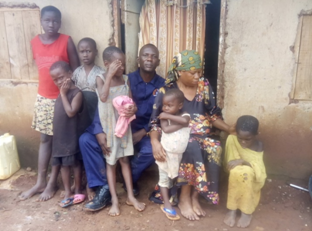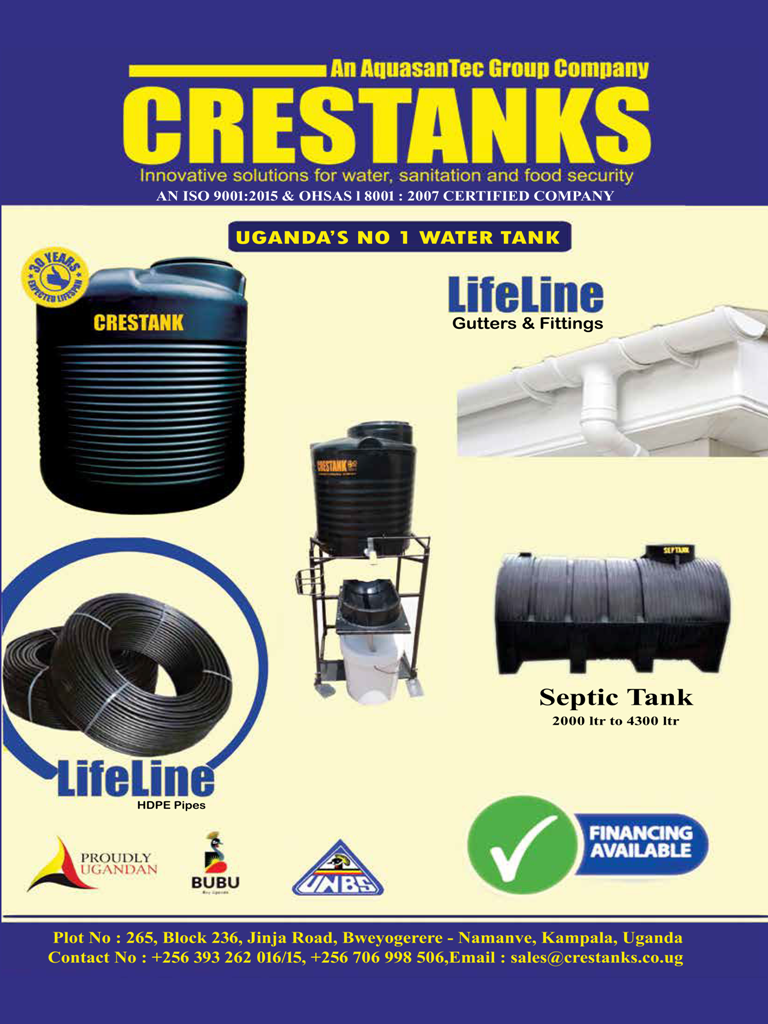Slums are known to be densely populated, with thousands of people packed in unplanned houses and make-shift shelters characterised by poor sanitation and hygiene. The water sources are polluted, the water channels are clogged with rubbish, waste management is poor and the sanitation facilities are wanting. The COVID-19 pandemic has hit mostly the urban areas around the world because of the large number of inhabitants. As the business day closes the cities are dispersed, the city outskirts and slums are filled with the residents.
The last few years have seen a number of interventions and campaigns to improve the sanitation and hygiene of the slums in Kampala. Some water channels had been unclogged through community clean-up exercises by organizations like Slum Life Survival and the efforts of KCCA, Kampala City Council Authorities and other organizations.

How Covid-19 has affected Sanitation and hygiene?
Sanitation and hygiene is a key element in human life both at a community and a personal level. Before the outbreak of the COVID-19, stakeholders had managed to put in place measures that ensure that there is improved sanitation.
Village Health Teams (VHTs) were sensitizing communities about the dangers of poor sanitation and hygiene in their respective areas. The health systems had been coming to a stable point with sanitation being under control.
Today, however, the situation is very alarming because of the lockdown, sanitation has been ignored and in some areas that have no community toilets or where toilet usage is for a fee, residents are paying 200 shillings per person which is very difficult for a family of six people paying for such amount every time children accessing the toilet.
People in slums earn hand to mouth with nothing to save, so in the lockdown they are grappling with what to eat for their survival therefore they can’t afford paying for a toilet when they are earning less than 6000 shillings a day.
Sanitation facilities and hygiene
Here is Robina, a slum resident living with 6 children, who has been working as a market vendor at a small market. Right now she cannot work because she has no capital to resume her business so it becomes impossible for her and family to pay for toilet access. Such cases which are numerous, which is why there is a considerable number open defecation cases.
Robina told me that right now, there is increase in quarrels between landlords and their tenants emanating from the use and maintenance of sanitation facilities. Before the lockdown, children would spend most of their time at school or away from home. Today, everyone is at home putting a lot of pressure on the few available sanitation facilities.
One slum resident opened up to us on how the landlord called for a meeting with tenants raising issues of children damaging latrine facilities. “We have many quarrels in the community over the use of sanitation facilities since many are shared among different families. Some people, after using the facilities leave them dirty,” the resident said.
The problems associated with dirty latrines or sanitation facilities are many and are a stumbling block to the government’s strategies of keeping the people safe from COVID-19, becoming a direct result of the pandemic.
Recommendations
Closely examining the challenges met during this COVID-19 pandemic in the slum communities, the following measures are recommended;
- Strategies to stop the spread of coronavirus in Uganda need the involvement of community structures like the KCCA WASH initiative (Weyonje) and Village Health Teams (VHTs). When trained and facilitated, one can carry out house-to-house community mobilization, sensitize the community residents on proper and regular sanitation hygiene both hand washing with water and soap to prevent the spread of coronavirus.
- If at all a person in the slums is suspected or confirmed with COVID-19, they should be withdrawn from the community. Attempting to quarantine a patient in the slums is highly risky is preventing the spread because as earlier indicated, slums are congested neighbourhoods even in homes, implementing Social Distancing is highly impossible.
- As part of the measures, the slum communities need to be provided with soap, specifically the bar soap and also detergents like Omo to help in washing hands as well as cleaning the toilets. Toilets need to be cleaned at least twice daily. Further, and consistent with existing guidance, restaurants and public places with toilets need to have them cleaned up thrice a day with disinfectants by worker having a mask, gloves and boots. The boots are later disinfected as well and not worn after to avoid spreading any contamination on the ground.
- The government should have favourable structures on easing the lockdown such that people that earn hand-to-mouth can afford to have the basic necessities. Vigorous sensitization in these communities is important because in the nature of their livelihoods they have a lot of contact
- The Kampala Capital City Authority (KCCA) needs to work closely with the water government agency, National Water and Sewage Corporation (NWSC) to make clean water accessible to the slum communities by extending the existing water systems to reach deep into the slums.
- Water payments need to be deducted by a percentage to enable the communities to be able to pay for the water. Alternatively, as part of the COVID-19 mitigation strategies, the government needs to subsidise to a tune of almost 70 per cent of NWSC current expenditure.
In conclusion
When you move around Kampala’s slums, it is very clear that people are very much aware of COVID-19, and due to government measures put into existence, social distancing and hand washing measure are more effective. In most informal settlements like Kinawataka, Mulago Katanga, Kamwokya, houses are overcrowded, physical space is scarce, and many residents rely on daily wage labour for survival. Stopping them from work has caused more challenges like domestic violence amplifying more the challenges these communities have faced.
It’s just by God’s grace that Uganda has not registered too any community cases, but if the Coronavirus pandemic reaches urban poor settlements of Kampala, the situation can be worse because of too much congestion and lack of proper sanitation and hygiene services. Slum-dwellers need to take more action on the spread of COVID-19.
To deal with the COVID-19 pandemic, we need to have volunteers and VHTs working across the different slum locations and we need to be cognizant that one size does not fit all. Measures that work in affluent communities of the city may not necessarily work the same way in the slums. For the urban poor to weather the COVID-19 pandemic, the government should prioritize the provision of essential needs, including improving access to safe water, sanitation and hygiene sensitization.
Kenneth Kavulu is a Pan-African journalist, a member of CAPOOP Media and a journalist at Buganda Broadcasting services (BBS Terefayina).



















